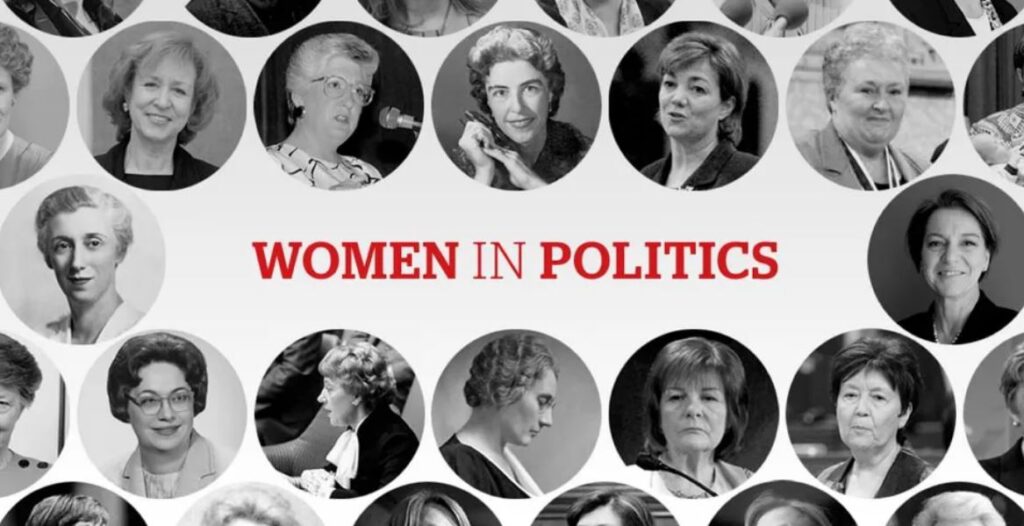The Role of Women in Politics
The Role of Women in Politics – Over the years, there has been a growing recognition of women’s untapped capacity in leadership. Women are more involved in political decision-making and implementation of laws across the globe. The rate of representation of women in parliaments has grown tremendously over the past decade. There is a growing understanding of why women’s participation in politics is significant in developing and sustaining nations as their contribution towards a better society is well documented. Women’s participation in politics has contributed a great deal towards economic growth, gender equality, advancing social rights and in enhancing health, reduce mortality and fertility rates.
Women have been advocates towards economic growth. In the past, women were considered to be insignificant in the society, and they were uneducated. Women, therefore, had low economic status, relative poverty and limited business network which their hindered economic growth. Now that more women are educated and actively involved in leadership, they can attain access to economic resources and relative financial stability (Kabeer & Natali, 2013). This has significantly increased financial security across nations since women’s skills are effectively used in utilizing economic resources. Therefore, women’s involvement in politics has contributed substantially to economic growth worldwide.
Women’s meaningful involvement in politics has boosted gender equality. Not long ago, women were only viewed as property to men and hence were not accorded equal chance in various fields such as education and leadership. They also could not own property in some societies. Downs, Reif, Hokororo and Fitzgerald (2014) note that over the years, women leaders have formed women groups and movements that have given women a voice in the struggle to have equal rights as men. These efforts have proved successful in ensuring gender equality across the world. Women now participate equally as men in the making and implementation of policies and also their rights to education and own property among others. This has enhanced women empowerment which has led to gender equality.
Women lawmakers are family-friendly in their platforms hence they tend to advance social studies. This is majorly due to the role women play as mothers and caregivers to their communities. Kabeer and Natali (2013) posit that, women leaders use their positions to help minority and often forgotten groups such as disabled people who are unrecognized by society. Women can, therefore, improve the social relations in the society since they take into consideration community concerns and are more responsive to people’s needs. These qualities of women in power encourage confidence from the people hence social relations are enhanced.

Women in politics are a tool for improved health and reduced mortality and fertility rates. This relationship is obvious since nutrition and child health fall within the remit of the woman’s household decisions. More women are educated on family planning hence they can give birth to a manageable number of children whose needs they can cater for sufficiently (Downs et al., 2014). Ultimately, strong, educated and empowered women bring up children who are equally healthy, educated and empowered. These children grow to be responsible people in the society.
Overall, when women are entrusted to lead, countries often experience higher standards of living with significant developments in economic growth, gender equality, social relations and improved health which in turn reduces mortality rates. Women are just as capable of running countries as men, so they should not shy away from this enormous task. Allowing women to take up positions in politics will also help break traditional customs that hindered developments across nations. We as a society should be ready to entrust women to power since they are agents of change in the society.
References
Downs, J. A., Reif, M. L. K., Hokororo, A., & Fitzgerald, D. W. (2014). Increasing women in politics and leadership in global health. Academic medicine: journal of the Association of American Medical Colleges, 89(8), 1103.
Kabeer, N., & Natali, L. (2013). Gender Equality and Economic Growth: Is there a Win‐Win?. IDS Working Papers, 2013(417), 1-58.
Women in Politics Relevant Posts
Barriers to Women in the UK Construction Industry
If you enjoyed reading this post on the role of women in politics, I would be very grateful if you could help spread this knowledge by emailing this post to a friend, or sharing it on Twitter or Facebook. Thank you.

Have you seen the number of women in politics at this moment in time. Truly inspirational. Are women leaders just as good as make leaders?
Hello Ferdinard. My thoughts are that women leaders are just as good as their male counterparts. We are now waiting for the first female president of the US.